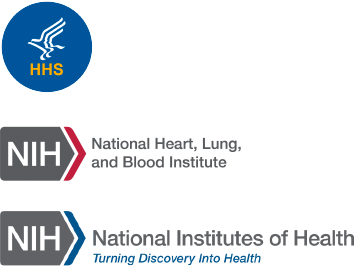

What is the ACTIV-4b Outpatient Study?¿Qué es el estudio de consulta externa ACTIV-4b?
ACTIV-4b is a national study to determine if taking an FDA-approved and commonly prescribed blood thinner Eliquis (apixaban), or alternatively, taking baby aspirin is better than taking no blood thinner to prevent blood clots in people with COVID-19 who are recovering from their symptoms at home.ACTIV-4b es un estudio nacional para determinar si tomar Eliquis (apixabán), un anticoagulante que se receta con frecuencia y que está aprobado por la FDA, o tomar Aspirina de dosis baja es mejor que no tomar ningún anticoagulante para evitar la formación de coágulos en personas con COVID-19 que se recuperan de sus síntomas en casa.
By participating in this study, you will help us learn more about COVID-19 and the best way to treat people newly diagnosed with COVID-19.Al participar en este estudio, nos ayudará a saber más sobre la COVID-19 y la mejor forma de tratar a las personas recién diagnosticadas con esta enfermedad.

What is the link between blood clots and COVID-19?¿Cuál es el vínculo entre los coágulos sanguíneos y la COVID-19?
The chance of blood clots in patients who are diagnosed with COVID-19 is higher than for patients who do not have COVID-19.Las probabilidades de que los pacientes diagnosticados con COVID-19 presenten coágulos sanguíneos son más altas en comparación con los pacientes sin esta enfermedad.
To date, doctors can use blood thinner medicines or aspirin to lower the risk of blood clots forming in veins and arteries. Blood clots that form inside the big blood vessels of the legs can travel through the body to the lungs, called pulmonary embolus, which can make it hard to get oxygen.Hasta la fecha, los médicos pueden usar anticoagulantes o Aspirina para disminuir el riesgo de presentar coágulos sanguíneos en las venas y las arterias. Los coágulos sanguíneos que se forma dentro de los vasos sanguíneos grandes de las piernas pueden desplazarse por el cuerpo hasta los pulmones, causando lo que se llama émbolo pulmonar y dificultando la obtención de oxígeno.
With COVID-19, blood clots can also form directly in the lungs or in the heart and brain. Blood thinners can be given in different doses to prevent blood clots from forming. Doctors often use lower doses to prevent blood clots from happening and higher doses to treat blood clots that have already happened.Con la COVID-19, también se pueden formar coágulos sanguíneos directamente en los pulmones, el corazón o el cerebro. Los anticoagulantes se pueden administrar en diferentes dosis para evitar que se formen coágulos. Los médicos suelen usar dosis bajas para evitar la formación de coágulos sanguíneos y dosis altas para tratar los coágulos que ya se han formado.
Who is a good fit for the ACTIV-4b study?¿Quién es apto para el estudio ACTIV-4b?
Someone who is:Alguien que:
- Between 40 - 80 yrs old
- COVID-19 positive in the last 14 days and is symptomatic
- Not pregnant
- Willing to have a blood test to confirm they can safely join the study
- Willing and able to take study pills every morning and evening for 45 days
- Willing to complete a survey to confirm their study pills were received
- Willing to complete 6 weekly check-ins, along with one call 75 days after starting, so study staff can assure safety and track their progress
- Tenga entre 40 y 80 años
- Haya recibido un resultado positivo de la prueba de COVID-19 en los últimos 14 días y esté asintomático
- No esté embarazada
- Esté dispuesto a someterse a una prueba de sangre para confirmar si puede inscribirse en el estudio de forma segura
- Esté dispuesto y en capacidad para tomar las pastillas del estudio todas las mañanas y las noches por 45 días
- Esté dispuesto a completar un cuestionario para confirmar que recibió las pastillas del estudio
- Esté dispuesto a tener seis controles semanales y a recibir una llamada a los 75 días después de comenzar para que el personal del estudio pueda evaluar la seguridad y seguir su evolución
What happens during the study?¿Qué pasa durante el estudio?




The study team will call you to confirm that you received your package and to answer any questions you may have.El equipo del estudio lo llamará para confirmar que recibió el paquete y para contestarle cualquier pregunta que tenga.




After 75 days the study team will make one additional phone call to check-in and see how you're doing.Después de 75 días, el equipo del estudio lo llamará otra vez para ver cómo está.
Which medication is a part of this study?¿Qué medicamento forma parte del estudio?
The ACTIV-4b study is comparing preventative treatments to see if taking an FDA approved and commonly prescribed blood thinner Eliquis (apixaban), or alternatively, taking baby aspirin is better than taking no blood thinner to prevent blood clots in people with COVID-19 who are recovering from their symptoms at home.En el estudio ACTIV-4b se comparan tratamientos preventivos para ver si tomar Eliquis (apixabán), un anticoagulante recetado con frecuencia y aprobado por la FDA o una Aspirina de dosis baja es mejor que no tomar anticoagulantes para evitar la formación de coágulos sanguíneos en personas con COVID-19 que se recuperan de sus síntomas en casa.
Doctors and researchers know these medications work well to prevent blood clots already, but the ACTIV-4b study hopes to find which particular dosage and medication does that best for patients with COVID-19.Los médicos y los investigadores ya saben que estos medicamentos funcionan bien para prevenir los coágulos sanguíneos, pero con el estudio ACTIV-4b se espera determinar qué dosis particular y qué medicamento es mejor para los pacientes de COVID-19.

What medication would I take?¿Qué medicamento tomaré?
You would be randomly assigned by a computer (like flipping a coin) to one of four groups:Se le asignará al azar por medio de una computadora (como lanzar una moneda al aire) a uno de cuatro grupos:



Meet the study leadership teamConozca a los directores del estudio

Dr. Frank Sciurba,University of Pittsburgh
Principal Investigator, Data Coordinating CenterInvestigador Principal

Dr. Jean Connors,Brigham and Women's Hospital
Principal InvestigatorInvestigador Principal

Dr. Paul Ridker,Brigham and Women's Hospital
Trial ChairmanInvestigador Principal

Dr. Jerry Krishnan,University of Illinois Chicago
Principal Investigator, Research Communication Center DirectorInvestigador Principal
Dr. Frank Sciurba,University of Pittsburgh
Dr. Jean Connors,Brigham and Women's Hospital
Dr. Paul Ridker,Brigham and Women's Hospital
Dr. Jerry Krishnan,University of Illinois Chicago
Principal Investigator, Data Coordinating CenterInvestigador Principal
Principal InvestigatorInvestigador Principal
Trial ChairmanInvestigador Principal
Principal Investigator, Research Communication Center DirectorInvestigador Principal
Our PartnersNuestros Colaboradores





